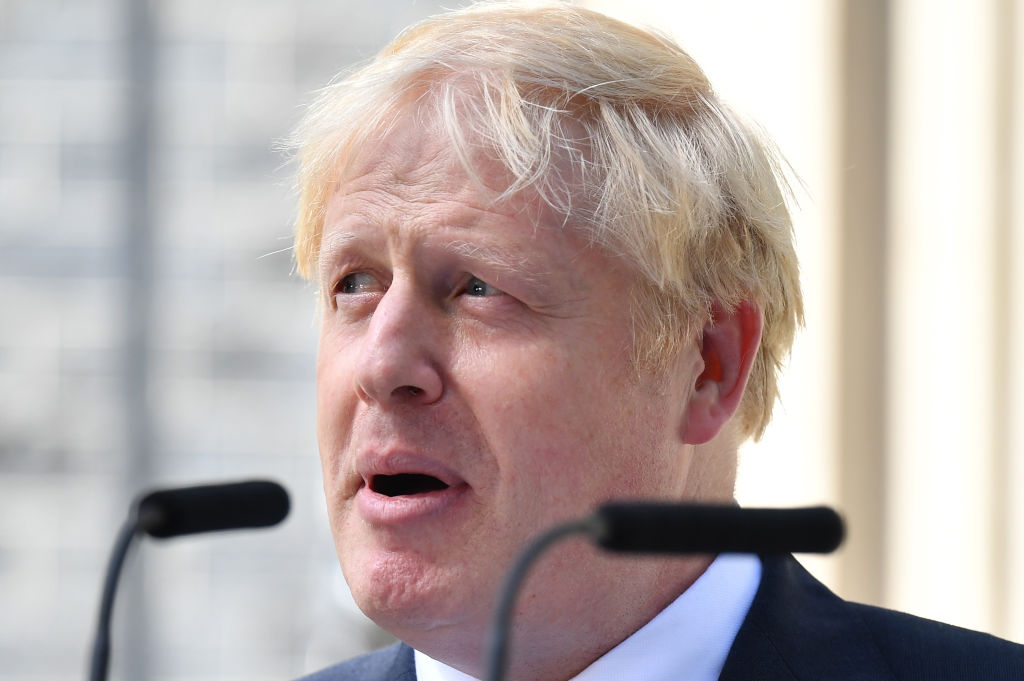Some thoughts on the arrival in office of Prime Minister Boris Johnson, based on his first speech, his first appointments and some conversations with people in different parts of the Conservative party and Whitehall today.
These are not all my own predictions; some belong to others. But they’re under my name, so I’ll be happy to answer for them when – and if – they’re proven wrong:
1. A no-deal exit from the EU is much more likely than financial markets currently imply, and much more likely to become the de facto object of UK government policyJohnson’s speech gave him very, very little room for manoeuvre over Brexit. As his first act, he’s committed to leaving on October 31. For all his talk of seeking a “new deal” with the EU, his rejection of the “undemocratic” backstop and overt threat to withhold the “£39 billion” are clear pointers to the day when he – no doubt with theatrical reluctance and heavy heart – accepts that “Brussels” will not budge and so Britain must leave without a deal. Don’t be surprised if the pound falls again soon as investors start to accept this.
2. Boris Johnson will seek a general election in the next nine months.Among the evidence for this is the appointment of Dominic Cummings in Downing Street. Cummings probably deserves the “genius” tag often bestowed on him, but his genius is not for governing. It’s for starting – and winning – arguments. He’s a lethally effective campaigner, not an administrator. Giving him a job in No. 10 is about ensuring the best conditions for fighting and winning a general election. That election could, just, come about after Britain has left the EU, Johnson using his record of delivering on that Day One promise as the platform for seeking a new mandate of his own.
But more likely is that the election is all about seeking a mandate to leave without a deal, to sweep aside the resistance of the EU, of Parliament and the civil service, Bank of England, the BBC and any other institution that is seen to have gloomily stood in the way of sunny Brexit. A short, sharp campaign framed as “the people (who want Brexit) versus the elites (who want to thwart it)” is a very real possibility this year.
The mass-slaying of ministers is also highly suggestive of a Prime Minister who is expecting to go to the country soon. He started with a majority in single figures and then has created a lot of new backbench enemies today. That’s not a recipe for a stable, long-lived government.
3. That election would hasten the re-alignment of British politics and turn the Conservatives into a Brexit party
Fighting a general election on the promise to deliver Brexit would be a conscious decision to risk losing (or not regaining) significant numbers of votes and seats to the Liberal Democrats in Remain-voting places where large numbers of voters have university degrees.
It’s often forgotten that the last time the Tories won a majority, way back in 2015, it was because David Cameron won 27 seats from the Liberal Democrats, a few of which Theresa May then lost in 2017. A Brexit-Conservative party can only offset the likely loss of such seats in the next election by gaining many of the working-class, Leave-inclined Labour seats that May targeted in 2017 but mostly failed to gain.
4. That transformation wouldn’t just be about Brexit. It would hasten Britain’s descent into culture war.
Tim Montgomerie is the first Leaver I’ve seen say this publicly, but others say it privately. Delivering Brexit is no longer just about implementing a single policy. It’s about a lasting political and cultural defeat of those who are seen to oppose that policy – and of the “values” imputed to them. That could have implications for a host of policy areas, where the social-conservative values closely associated with Leave voting may come to dominate Government/Conservative thinking: law and order and the environment are two key areas to watch.
It’s not a given that Prime Minister Johnson, once proud of his social liberalism, will sign up for this fight, but he may not be able to stop it breaking out.
5. Another general election isn’t a given – if Tory rebels push for a second referendum instead
This really is just my speculation, but what would happen if enough Conservative MPs refused to vote down a Johnson government and trigger an election but instead opted to vote for a new EU referendum? It is surely possible to see a Commons majority for that second vote as an alternative to No Deal and/or an election.
6. The Conservative party has already changed hugely in the three years since the EU referendum, but managed to avoid schism. That could change.
Today saw the resignation of Philip Hammond as chancellor. Hammond is – or used to be—the quintessential Conservative: a self-made man from Surrey who backs business and low taxes and drives a Jag. For years, he stood at the dead centre of Conservative opinion, mainstream Toryism incarnate.
Yet he leaves office to join the radical, subversive wing of his party, a dissident by virtue of rejecting a policy he believes would disrupt British business and his defence of British institutions, such as the Bank of England and Parliament itself. A party that has no place for Hammond in government arguably has no business calling itself Conservative, or even conservative. The Conservative party has moved a long, long way since 2016, but so far remained intact, a single coherent entity. Whether it can remain so through the events that might well come next is an open, and critically important, question.







Comments